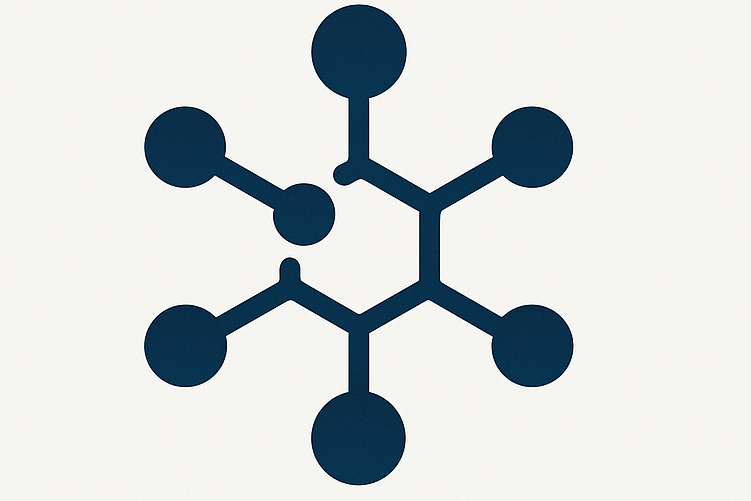Functional Mushrooms Guide (2025): Benefits, Research & How to Use Them
Introduction
“Mushrooms are miniature pharmaceutical factories.” – Dr. Paul Stamets
For centuries, mushrooms have been revered in traditional medicine. But in the last few years, they’ve gone from ancient remedy to modern wellness superstar — and for good reason.
Enter functional mushrooms — not the magic kind, and not your average grocery store button caps either. These are powerful fungi with bioactive compounds shown to support cognition, immunity, stress resilience, and energy metabolism.
You’ll find them in powders, capsules, teas, and coffee blends — and the science behind them is growing fast. But which ones are worth it? Which are hype?
Let’s break down the benefits, research, and real-world use cases of the top functional mushrooms — and how to incorporate them safely into your wellness stack.
What Are Functional Mushrooms?
Functional mushrooms are non-psychoactive fungi that provide health benefits beyond basic nutrition.
They’re rich in:
- Beta-glucans – powerful immune modulators
- Polysaccharides – gut and microbiome-friendly carbohydrates
- Triterpenes – antioxidant and anti-inflammatory compounds
- Hericenones & erinacines – specific to Lion’s Mane for nerve growth
Unlike culinary mushrooms, these fungi are adaptogenic — meaning they help the body adapt to physical and mental stress.
They’ve been studied for their potential to:
- Support cognitive function
- Enhance immune defense
- Improve energy production
- Reduce inflammation and stress markers
Top Functional Mushrooms and Their Benefits
Here’s a breakdown of the most studied functional mushrooms and what the science says so far:
1. Lion’s Mane (Hericium erinaceus)
- Supports nerve growth factor (NGF)
- May improve memory and mental clarity
- Shown in human studies to support mild cognitive impairment
- Often used for brain fog and long-term focus
2. Reishi (Ganoderma lucidum)
- Known as the “mushroom of immortality”
- Supports immune modulation and stress response
- Has mild sedative effects for better sleep
- Adaptogenic; balances rather than stimulates
3. Cordyceps (Cordyceps militaris/sinensis)
- Enhances ATP production and oxygen use
- Used by athletes for endurance and recovery
- Also supports libido and adrenal function
- Ideal for low energy or burnout
4. Chaga (Inonotus obliquus)
- One of the highest natural sources of antioxidants
- Traditionally used to reduce inflammation
- Early lab research shows promise in blood sugar and immune support
- Anti-cancer claims remain unproven in humans
5. Turkey Tail (Trametes versicolor)
- Rich in polysaccharide-K (PSK)
- Used as a complementary therapy in Japanese cancer treatment
- Shown to enhance immune function
- Also supports gut health via microbiome diversity
How to Choose the Right Mushrooms for Your Needs
Every mushroom has its own strengths. Choose based on your goals:
- For brain and focus: Lion’s Mane
- For sleep and stress: Reishi
- For energy and endurance: Cordyceps
- For antioxidant support: Chaga
- For immune health: Turkey Tail
You can also find mushroom blends, but be cautious — many underdose key ingredients. Look for products that show the amount of fruiting body, not just “mycelium on grain.”
Are Functional Mushrooms Safe?
Generally, yes. Most functional mushrooms are well-tolerated and have a long history of safe use. Still, keep these tips in mind:
- Check for allergies or mold sensitivity
- Start with small doses and increase gradually
- Use high-quality extracts (preferably hot water extracted)
- Look for beta-glucan content on labels
- Avoid unverified “super blends” with unclear sourcing
If you’re immunocompromised or on medication, talk to your healthcare provider before use.
How to Use Functional Mushrooms
There are several ways to incorporate mushrooms into your daily life:
- Capsules: Easy and precise for dosage
- Powders: Great for smoothies, coffee, or baking
- Tinctures: Alcohol-based extracts for fast absorption
- Mushroom coffee: Combo blends for energy and focus
- Teas: Reishi and Chaga work well as herbal infusions
Use them consistently for best results — benefits build over time.
What the Research Really Says
Most functional mushrooms have been used for centuries — but modern science is now catching up.
- Lion’s Mane: Multiple studies support NGF production and cognitive improvement
- Reishi: Recognized by the EMA for immune modulation, but not FDA-approved
- Cordyceps: Shown to improve VO2 max and energy in some human studies
- Chaga: Lab evidence supports antioxidant properties, but human trials are limited
- Turkey Tail: PSK has clinical backing as immune support in cancer care
Bottom line: These fungi aren’t magic, but they’re promising when used intelligently.
Conclusion: Mushrooms That Matter
Functional mushrooms aren’t a trend — they’re timeless. With a rich history in Eastern medicine and growing modern validation, they offer a safe, natural way to support brain health, immunity, and energy.
Whether you’re adding Lion’s Mane to your morning routine or sipping Reishi tea before bed, there’s a fungus that fits your focus.

